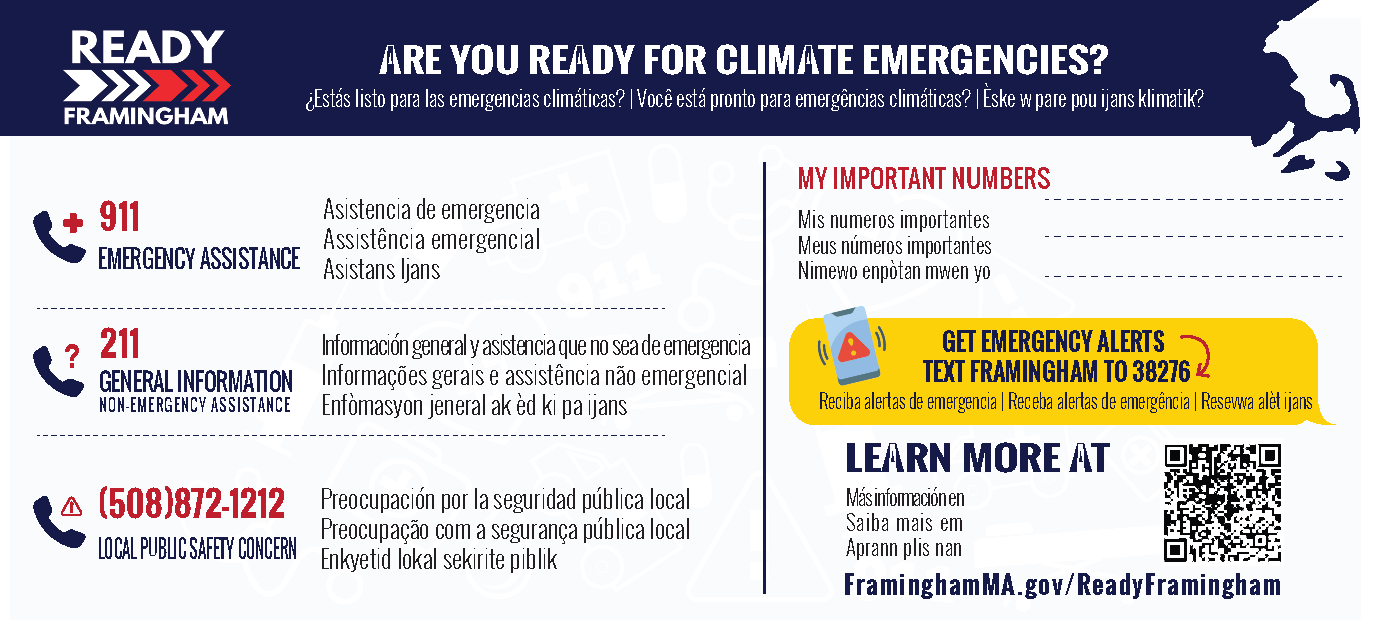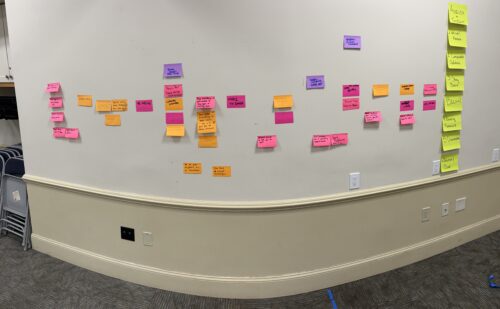Climate Emergency Communications in Metro West
Written by Sharon Ron, Assistant Director of Public Health
August 25, 2023 - The residents of Metro West were concerned; in surveys and focus group conversations, they reflected that climate change was causing more extreme weather and wanted to know, “How can we be ready for climate emergencies?”
In response, municipal staff from Framingham and Natick partnered with a team of residents, called Community Climate Liaisons, to design and share climate preparedness communication materials. The result? A fridge magnet and flyer, translated into four languages, focused on being ready for the climate emergencies Metro West was most likely to experience this past summer – extreme heat and severe storms.

One of the magnets mailed to Natick and Framingham households.
Natick and Framingham mailed the flyer and magnet to around 7,000 households in environmental justice neighborhoods, or neighborhoods that have characteristics that make them more vulnerable to climate change. Climate Liaisons also received copies to share with their networks. In the coming months, the team will work to create a winter version of the flyer and to adapt materials for sharing across multiple communication channels (such as social media, newsletters, and in-person at community centers).
You can learn more about the Metro West Climate Equity Project on the project webpage. If you are interested in adapting the flyers for your own use, please contact [email protected].
Behind the scenes – how the flyer was made
The Climate Emergency Communications project team included stakeholders from many municipal departments, including public health, fire, police, sustainability, schools, and communications. Critical to its success, however, was the participation of the Community Climate Liaisons. Climate Liaisons are residents of environmental justice neighborhoods who have been working with the city and town through the Metro West Climate Equity Project to support residents who are and will be hit hardest by climate change.


Through a series of virtual and in-person workshops, the project team explored the concepts of climate change, extreme weather, and emergency preparedness, co-designed communication materials, and updated the municipal emergency preparedness websites.
Together, the team identified a couple of core principles for communicating about climate emergencies:
- Simplicity, visuals, and translation were all critical
- A focus on the most immediate impacts of climate change
- A need to share information across different channels and partner with community groups to reach different segments of the population
This work was funded through a Demonstration Sites in Climate & Health grant from the National Association of County and City Health Officials and the MAPC Technical Assistance Program.
